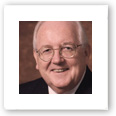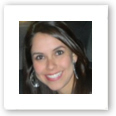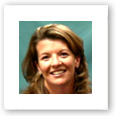 Happy New Year to all of you in the MNA network! We at the Mendoza College of Business begin this New Year without our longtime leader and supporter, Dean Carolyn Woo. On Jan 3, Dean Woo became the president of Catholic Relief Services. Though we will miss her, we will continue to enjoy and benefit from her vision and accomplishments of 14 years. Perhaps her most notable success story involved having the college’s undergraduate program ranked No. 1 two years in a row by BusinessWeek. From my perspective, her commitment to improve the quality of the business acumen of service sector leaders ranks right up there with the Bloomberg ranking. Carolyn Woo saw the Master of Nonprofit Administration as the key to fulfilling her commitment.
Happy New Year to all of you in the MNA network! We at the Mendoza College of Business begin this New Year without our longtime leader and supporter, Dean Carolyn Woo. On Jan 3, Dean Woo became the president of Catholic Relief Services. Though we will miss her, we will continue to enjoy and benefit from her vision and accomplishments of 14 years. Perhaps her most notable success story involved having the college’s undergraduate program ranked No. 1 two years in a row by BusinessWeek. From my perspective, her commitment to improve the quality of the business acumen of service sector leaders ranks right up there with the Bloomberg ranking. Carolyn Woo saw the Master of Nonprofit Administration as the key to fulfilling her commitment.
In this issue, you will see how right she was. A professor, two graduates and a current MNA student testify how valuable the role of the MNA degree is to their careers and to the service sector itself. Heather Short (MNA ’01) sees the degree as the empowering catalyst to her journey from the classroom to the Superintendent’s Office as director of Professional Development for one of Indiana’s best school districts. Similarly, Phil Baniewicz (MNA ’05) describes the degree as the leaven for an expanded role in Catholic education at college and high school levels. Phil’s commentary echoes one of Mendoza’s tag lines: “We give you the tools to change your life, and the vision to change the world.” Laura Aragon, a current international student from our neighboring nation Mexico, focuses on how the MNA community itself has contributed to her growth through friendship and trust. For her, the community includes her peers, the faculty and the degree’s administrators. And finally, John Halloran, professor of Finance, takes us full circle to why Dean Woo sees good business practice as an essential value to mission fulfillment.
I thank all of the contributors to this issue. Their stories no doubt reflect just the tip of the iceberg of the great things that are happening throughout the nation and world because of the work you all do, and because of the competence that the MNA confers! Please let us hear from you in the year ahead!


Why I'm Here
In his own words, John Halloran, associate professor in the Department of Finance, discusses the role of financial management in the nonprofit sector.
 The composition of students in the MNA program has changed considerably . . . in the 20 years I've been teaching the Financial Management course in the MNA program. In the early years, the students were primarily sisters in religious orders whose missions typically involved education and health care. Since the MNA program's reorganization in the early 2000s, the student body has consisted largely of lay men and women who work for a wide variety of nonprofit organizations that provide services ranging from education and the arts to health care and public services. Despite these changes, however, the overriding question of many students has remained constant: What exactly is the role of financial management in a program that educates managers of not-for-profit organizations?
The composition of students in the MNA program has changed considerably . . . in the 20 years I've been teaching the Financial Management course in the MNA program. In the early years, the students were primarily sisters in religious orders whose missions typically involved education and health care. Since the MNA program's reorganization in the early 2000s, the student body has consisted largely of lay men and women who work for a wide variety of nonprofit organizations that provide services ranging from education and the arts to health care and public services. Despite these changes, however, the overriding question of many students has remained constant: What exactly is the role of financial management in a program that educates managers of not-for-profit organizations?
The answer to that question is . . . the same today as it was 20 years ago: NFP managers have been entrusted with the resources required to accomplish their organizations' missions. Since these resources are scarce (especially in today's uncertain economy), the managers are held accountable by donors, philanthropic foundations, and state and federal funding agencies for efficiency in their deployment. Even individuals whose jobs are devoted solely to operational issues need to be aware of the financial impact of their activities on their organizations.
Some may be surprised to learn that financial literacy is just as important . . . for managers of not-for-profits as it is for their counterparts in the for-profit sector. What exactly are the types of financial skills that managers of NFP organizations should possess? The ability to analyze and interpret financial statements is fundamental. Assets and liabilities, revenues and expenses, and cash flows must be measured accurately and managed effectively. In addition, some familiarity with the operation of financial markets and the determination of interest rates on those markets is very useful.
Finally, a thorough understanding of procedures for the estimation of the value of proposals to invest in new facilities and activities is crucial. An organization cannot achieve financial efficiency if it is unable to measure the impact of an investment on that organization's value.
How do you place a value on doing good? The answer varies widely depending on the activities in question. Revenue-producing endeavors provide a relatively logical basis for a straightforward cost-benefit analysis. Non-revenue activities, on the other hand, call for some creativity in assigning values to their potential impact on individuals and society in general. As difficult as this task can be, it is one that donors, foundations, and government agencies are increasingly insistent be performed by NFP organizations. Without some financial justification for its activities, a non-profit is unlikely to secure funds from these parties. Thus, rather than being a distraction from the true focus of a not-for-profit organization, the financial management course stresses skills that assure continued access to the funding necessary to achieve the organization's mission.
> MNA Faculty Listing

My Experience So Far
Pleasant surprises and new traditions highlight Laura Aragon's time at Notre Dame
 I have had many international academic experiences, but there is no place like Notre Dame. I finished my undergraduate studies in Tec de Monterrey in Mexico, one of the biggest campuses in my home country. However, infrastructure in Notre Dame is just amazing. It´s like Disneyland! The campus has so much to offer: several gyms, an inspiring library, a bookstore, new and old buildings, a beautiful basilica where you can grow your spirit, two lakes, restaurants and even a hotel.
I have had many international academic experiences, but there is no place like Notre Dame. I finished my undergraduate studies in Tec de Monterrey in Mexico, one of the biggest campuses in my home country. However, infrastructure in Notre Dame is just amazing. It´s like Disneyland! The campus has so much to offer: several gyms, an inspiring library, a bookstore, new and old buildings, a beautiful basilica where you can grow your spirit, two lakes, restaurants and even a hotel.
But what really sets Notre Dame apart from other schools is the people. Here it seems that everyone's mission is to help you achieve your maximum potential and be happy.
When I first arrived in 2010—coming from Mexico City, where traffic can become a nightmare—one of my dreams was to be able to ride a bike every day to school. I bought an old bike, which I soon discovered was not in working condition. I told two people about this bad experience, and the next day, both had borrowed a bike from relatives and friends and brought them to school. Suddenly, I had my choice of bikes, and they were being offered to me by people who hardly knew me. This experience illustrates the solidarity and caring of staff and friends from Notre Dame.
Something else that surprised me about Notre Dame was exam days. In Mexico, professors—from primary school to university—worry a lot about people cheating during the tests, so they are extremely strict. Imagine my astonishment when some of my Notre Dame professors left us alone in the classrooms during the tests. I quickly realized it was a matter of trust. And no, there was never any copying or unethical behavior among my classmates during test time! I understand why Notre Dame is consistently rated as a University with the highest ethical standards.
Studying at Notre Dame has been useful in my career. Soon after I completed the course on human resources, I found myself applying what I learned to my career as I was in the position to hire new people. The methodology that I learned in that class helped me to design an effective recruitment process. That's one of the biggest benefits of maintaining employment while working toward the MNA degree—it gives students the opportunity to immediately put into action what they learn in class.
Finally, I am constantly encouraged by the positive relationships Notre Dame professors establish with the students. They challenge us every day, and they are not only knowledgeable in their field of study, but also they reinforce the importance of high ethics and spirituality in establishing a well-rounded nonprofit professional. This is something I still reflect on when I find myself worrying or in doubt. I always remember one of my MNA professors telling me that miracles happen at Notre Dame—and I believe it.

Making an Impact
Heather Short credits her MNA degree for making her a better educator of today's youth
 As a 2001 graduate of the MNA program, I reflect often on how pleased I am to have chosen to do my master’s work through Notre Dame. At the time I began the program, I was a classroom teacher for Penn-Harris-Madison schools in the South Bend area. As for many other teachers, there was a wide range of graduate programs available as options. My decision to go through the MNA program has provided a significant positive impact on my career path.
As a 2001 graduate of the MNA program, I reflect often on how pleased I am to have chosen to do my master’s work through Notre Dame. At the time I began the program, I was a classroom teacher for Penn-Harris-Madison schools in the South Bend area. As for many other teachers, there was a wide range of graduate programs available as options. My decision to go through the MNA program has provided a significant positive impact on my career path.
After graduating, I became director of the Gifted and Talented program for my district, followed by an appointment as a building principal. I now serve as the director for Professional Development and Student Learning for Penn-Harris-Madison School Corporation. Since my role is in education, we have to keep in mind that we are in a data-driven business in a human sector; we must keep curiosity alive in students while persistently guiding them toward success and not accepting failure. In addition, fostering teacher efficacy is critical to the success of schools. I frequently share that participating in the program at ND gave me a more holistic vision of nonprofit administration than I would have received if I had chosen to pursue a Master’s of Education. The discussions led by my professors proved to be powerful learning experiences as I gained knowledge from my classmates. I have felt well prepared to take on all aspects of the positions I have held.
The most obvious difference between the Notre Dame degree and others happened when I was serving in the role of building principal. I witnessed other administrators struggling with managing their school budget and financial resources and it was easy to recognize that classes in finance, accounting, and business management helped lift my level of understanding far above those from other programs.
Another notable strength of the program was that I was never far removed from the ongoing aspects of my job. Keeping my vision of creating highly effective students who are civic-minded, creative problem solvers and critical thinkers was easy to do since I continued working while taking my classes. Learning how to shift the culture of adults so they realize all decisions would be made with a “students-first” approach was a challenge that was helped by being involved in classes like organizational behavior and ethics.
People often talk about the power of a degree from Notre Dame. There is no argument to that, but that statement doesn’t recognize the people (including professors and other students) that make the program what it is. Establishing relationships that will enrich your life in the future is a definite bonus to the curriculum content of the program. For me, attending Notre Dame for my degree in nonprofit administration was a decision that has benefited me personally and professionally.

A Look Back
2005 MNA Graduate Phil Baniewicz explains what made his Notre Dame experience so special
 Life sure has a lot of twists and turns. Since the age of 18, God has led me down a path that has given me incredible opportunities to make a difference in the world. It wasn't what I expected; it was better. Little did I know that earning my MNA degree from the University of Notre Dame would be the key component in preparing me for what God had in store.
Life sure has a lot of twists and turns. Since the age of 18, God has led me down a path that has given me incredible opportunities to make a difference in the world. It wasn't what I expected; it was better. Little did I know that earning my MNA degree from the University of Notre Dame would be the key component in preparing me for what God had in store.
As a 2005 graduate, it is easy to look back and see how my MNA education was the perfect foundation for where I am today. I found myself in a situation where I was leading Life Teen (a Catholic youth ministry I co-founded), which had quickly become an international organization, with the skills of a parish youth minister rather than the tools of a nonprofit executive. I looked around for the right education that would help me take the organization to the next level. Enter the MNA program. I immediately saw results—from establishing the core values of our organization through a class project in marketing, to building a board member orientation from the board management class. The financial and human resource management classes also had a huge impact on how I addressed current situations. It felt like the entire program, as tough as it was, had been built specifically for my situation.
It was actually due to topics covered in the leadership class that alerted me that it was time to pass the torch on to the next leader for Life Teen and for me to see where God was leading me next. I am proud to say that because of what I learned in the MNA program about succession planning, the transition in leadership went smooth and Life Teen continues to grow to this day.
Doors kept opening. That's part of the value of a degree from the University of Notre Dame. I was offered a position to teach in the School of Business, as well as become the executive director of the entrepreneurship center at Benedictine College in Atchison, Kan. I found myself frequently perusing my MNA class notes as I taught college students about business leadership, financial management and business startup. One year later, I was promoted to vice president of college relations, overseeing all marketing, PR, and branding for the college. Once again, what I learned in the program was put into practice daily.
Now, I'm on to the next step of my journey. Although I wasn't seeking a change, I was offered the opportunity to become president of Maur Hill-Mount Academy, a Catholic, prep boarding school in Kansas. It is full of challenges. Changing the organizational culture, creating a sustainable financial model, and improving the academic rigor are all items we're addressing as we build it into a great Catholic school. Of course, I still contact some of my ND professors and refer to class notes as I find solutions to problems the school faces. Yes, the MNA degree keeps teaching long after you leave the classroom.
So who knows where the Lord will lead you or me. What I do know is that the MNA degree provides the foundation to succeed wherever He takes us.
MNA grads: Do you have a success story you'd like to share? Click here and let us know!



